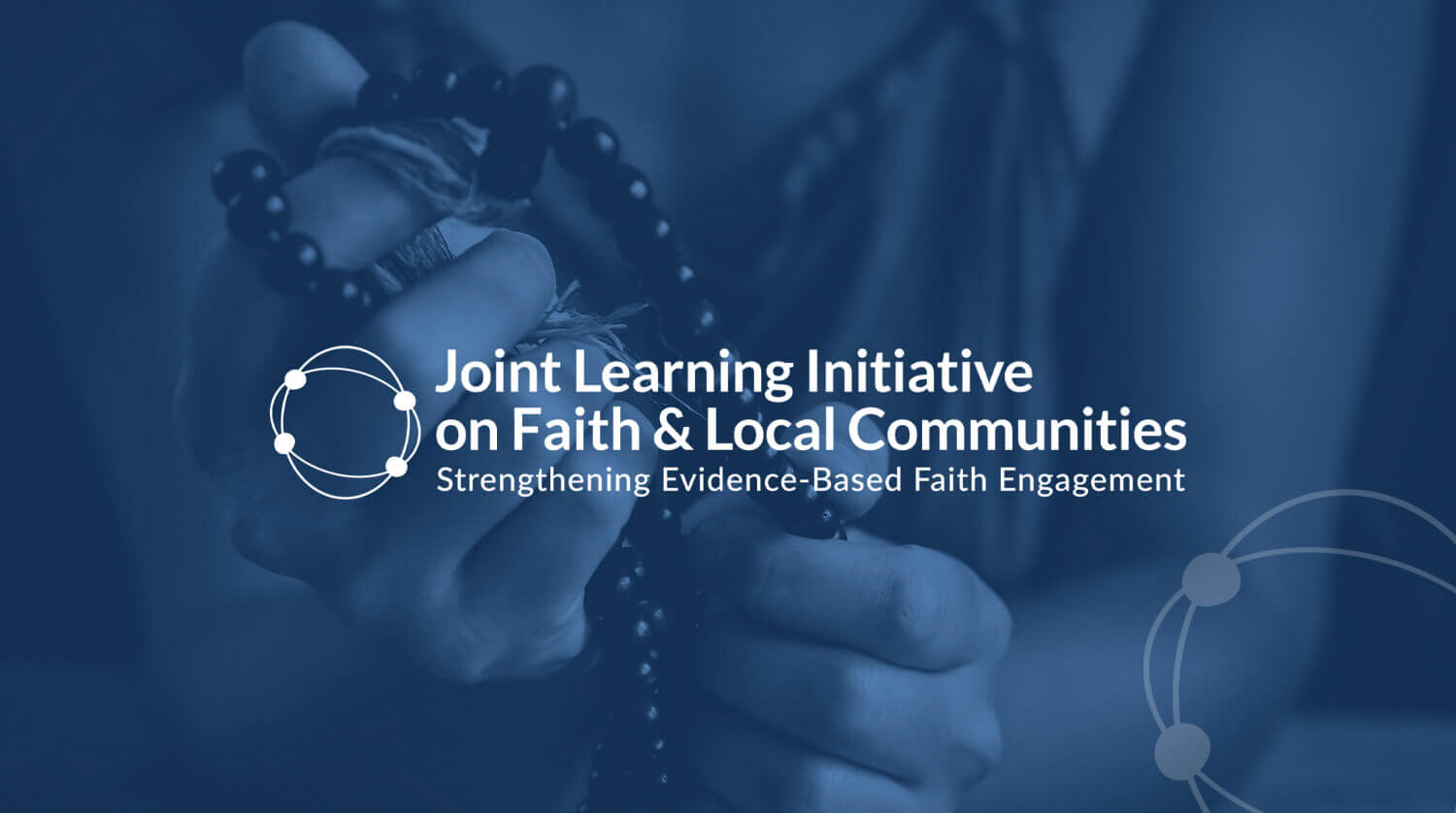Authors: Katherine Marshall and Olivia Wilkinson
In March 2020, the Religious Responses to COVID-19 project launched the “Faith and COVID-19: Resource Repository,” a digital platform that collects and communicates reliable information related to religious actors in the coronavirus crisis and response. The repository organizes resources so they can be quickly found and used by policymakers, development practitioners, and faith actors who seek to work together in the COVID-19 response. Since the repository was launched, we have seen a steady stream of new guidance documents prepared and published by a range of organizations and networks. Critical reflection on COVID-19 guidance for religious communities and leaders sheds further light on the complexities of faith engagement in the pandemic.
Faith guidance falls into three broad broad categories: guidance from religious institutions of different kinds, guidance from public health and international organizations, and guidance from faith-inspired organizations (like World Vision, Islamic Relief Worldwide, etc.). The early guidance addressed urgent issues of which the most notable were practices linked to gatherings and specific religious rituals. The guidance is progressively expanding to cover a wider range of topics including impact on specific groups (women, children) and related concerns (domestic violence).
From religious bodies, early examples from North America and Europe (such as the Muslim Council of Britain’s “Coronavirus Guidance for Mosques/Madrasas and Umrah Pilgrims” or the Massachusetts Council of Churches’ “Guidelines for Christian funerals during COVID-19“) were soon joined by guidance from other world regions (such as the Association of Member Episcopal Conferences in Eastern Africa’s “Guidelines on Safe Mass Gatherings“). Religious bodies also provide spiritual advice in connection to practical advice. Religions for Peace has collated some of the spiritual guidance materials across major religious traditions.
Another set of documents have been prepared (some with intensive consultations) by organizations including the Centers for Disease Control and Prevention (CDC) and World Health Organization (WHO). Both have updated existing materials and published new guidance specifically directed to faith communities. The CDC has an “Interim Guidance Document” for community and faith-based organizations, as well as a checklist for religious leaders. WHO consulted with faith-based organizations and religious leaders to create their “Practical Considerations and Recommendations for Religious Leaders and Faith-Based Communities in the Context of COVID-19,” which is connected to a decision tree for when it is safe to hold religious gatherings. They have also published interim guidance on “Safe Ramadan Practices in the Context of the COVID-19.”
Several faith-inspired organizations have built on existing materials reflecting experience in previous epidemics and pandemics to provide guidance specific to COVID-19. Examples include Episcopal Relief and Development’s Faith-Based Response to Epidemics Platform and World Vision’s “COVID-19: Guidance for Faith Communities & Places of Worship.” Pre-COVID guidance documents focused on topics ranging from WASH (Water, Sanitation, Hygiene) and gender to Ebola that have particular relevance for the current crisis are linked to on the resource repository under Existing Teachings/Practices That Can Guide Response. New materials from faith-inspired organizations include Islamic Relief Worldwide’s guidance on safe religious practice for Muslim communities during the coronavirus pandemic.
The focus during this relatively early stage of the pandemic has been largely on adaptations to religious gatherings and practices, including funerals and burials, as it was here that the most immediate and often jarring changes were needed in response to the nature of COVID-19. Newer guidance materials are starting to pick up on important aspects to the crisis, such as gendered aspects (from the World Council of Churches and from the Network of Religious and Traditional Peacemakers), adaptations needed in low- and middle-income countries (from the Interfaith Health Program), and advice for governments in their faith engagement (from the Tony Blair Institute for Global Change).
We continue to monitor publication of guidance documents (and reactions to them), and the resource repository will be updated accordingly.
To receive a daily email highlighting important additions to the “Faith and COVID-19: Resource Repository,” sign up here.






